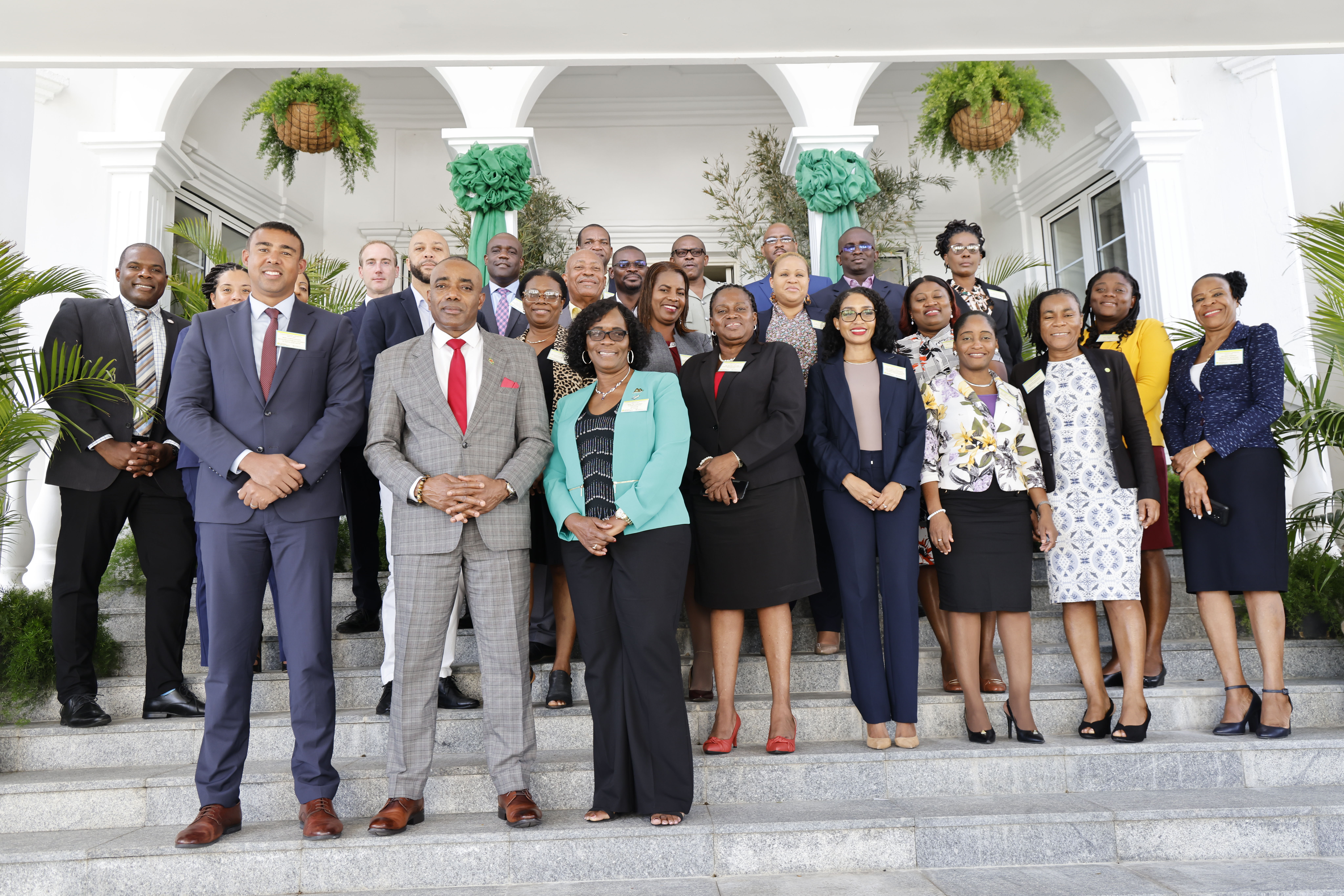The Second Ordinary Meeting of the OECS Council of Ministers for Immigration successfully hosted by the Commonwealth of Dominica
OECS Media Release
The Second Ordinary Meeting of the OECS Council of Ministers for Immigration was held on April 13, 2023 in the Commonwealth of Dominica at the Government State House. The Meeting was convened under the chairmanship of the Honourable Rayburn Blackmoore, Minister for National Security and Legal Affairs of Dominica.
In providing the context to the meeting during his remarks at the Opening Ceremony, OECS Director General Dr. Didacus Jules highlighted the benefits derived thus far from the free movement of people regime, articulating that,
“Citizens from OECS Protocol Member States benefit from seamless travel, receive indefinite stay upon arrival, have access to available employment without the requirement of a work permit and [further benefits are to be received] as efforts toward the full implementation of contingent rights are also ongoing”.
The Director General noted further that,
“The establishment of the Council of Ministers for Immigration was necessary to allow for the political dialogue to support further advancement of the free movement of people regime”.
Honourable Blackmoore, in his brief remarks during the opening ceremony also emphasized the benefits of the OECS arrangement highlighting that
“The OECS from inception has been a symbol of regional integration and has built over the years a reputation for doing things together as a sub-region.” He noted further that “this second meeting of the Council of Ministers for Immigration is a further testament and commitment to advancing and furthering OECS integration on immigration matters”.
Honourable Blackmoore also took the opportunity to emphasize to the ministerial delegation the need to address legacy issues collectively to advance free movement of people in the sub-region.
In the main, the meeting examined several matters of importance to allow for the effective operations of the free movement of persons regime within the Eastern Caribbean Economic Union and for ensuring safe and orderly movement of persons across the OECS region. The following are the key highlights of the issues discussed.
- The Council of Ministers received a presentation on the movement towards strengthening seamless travel through the development and implementation of online ED forms. The benefits of the initiative were emphasized, and the meeting discussed the actions required by Member States to complete the full implementation of the initiative.
- Also discussed was the need for national and regional efforts to strengthen data sharing across the OECS to allow for an enhancement in border security. Member States agreed to the adoption of national and regional actions that will strengthen border security and advance the realization of a Single Domestic Space within the OECS.
- The Council of Ministers also received a presentation on the implementation of the OECS Policy on Contingent Rights. Ministers and other Heads of Delegation discussed the inclusion of harmonized guidelines for receiving and treating third country nationals at the points of entry in the draft OECS Contingent Rights Model Bill. Key issues associated with the seamless movement of persons were highlighted during the discussion. The Council of Ministers also mandated the need for further efforts to ensure adequate safeguards are in place to avoid abuses of the benefits of free movement.
- The Council of Ministers received an update on the UN Trust Fund for Human Security (UNTFHS) Joint Programme implemented in collaboration with the International Organization for Migration (IOM), the Platform on Disaster Displacement (PDD), the United Nations Framework Convention on Climate Change (UNFCCC) and the OECS Commission. The Council also discussed the proposed Ministerial Declaration on Environmental Migration and committed to signing the same in the coming weeks.
In bringing the meeting to closure, the Honourable Blackmoore, Chairman of the Council of Ministers for Immigration, emphasized the need for urgent collective actions to address the issues raised and to ensure the operationalization of a more robust free movement of persons regime and for the preservation of national and regional border security.











